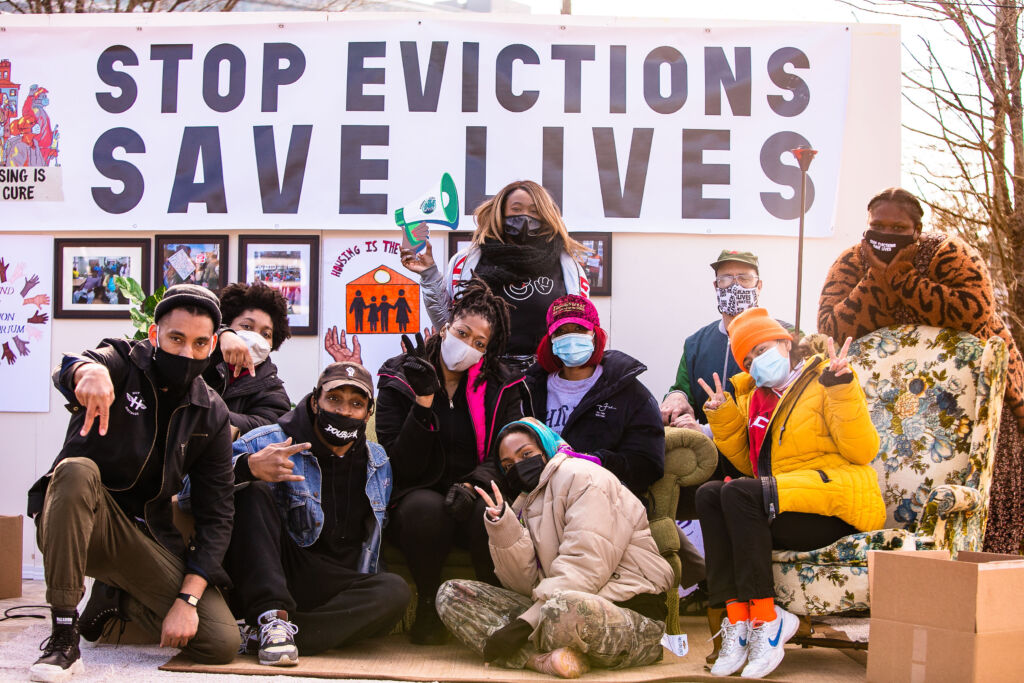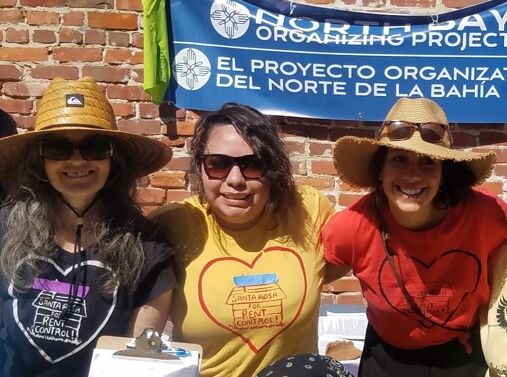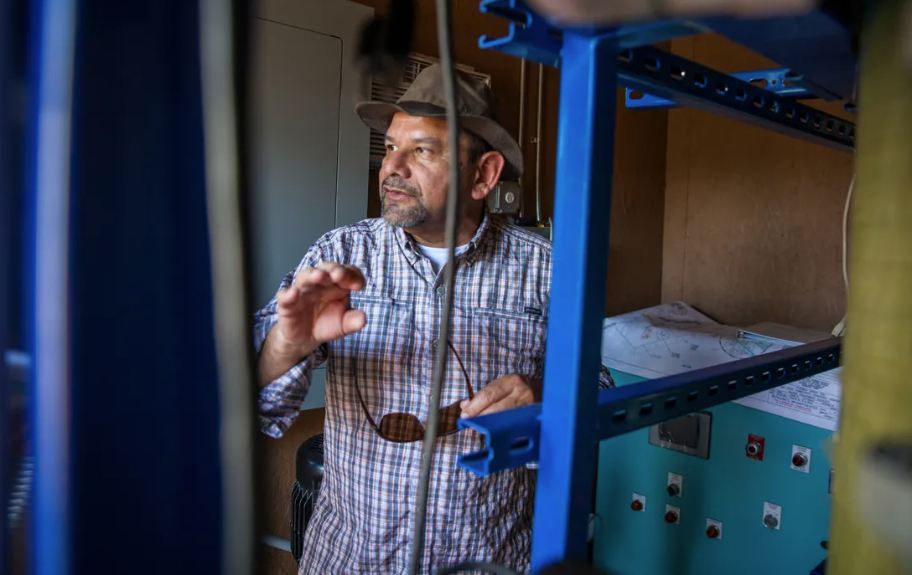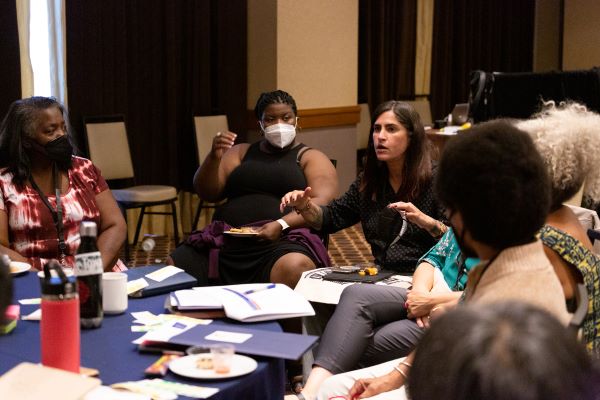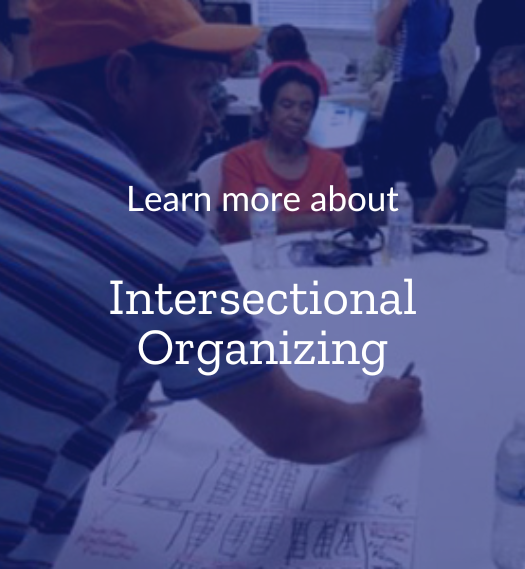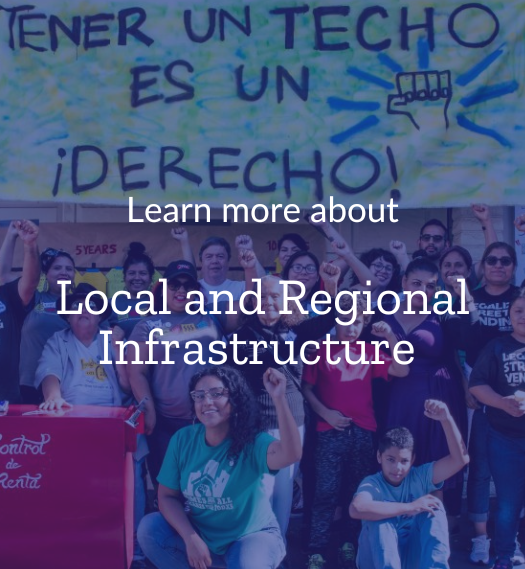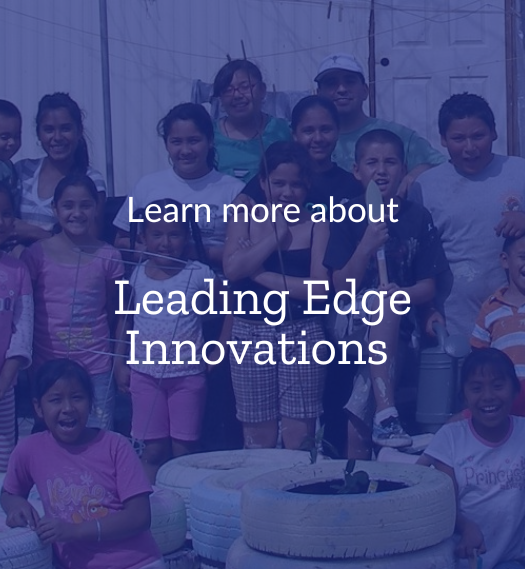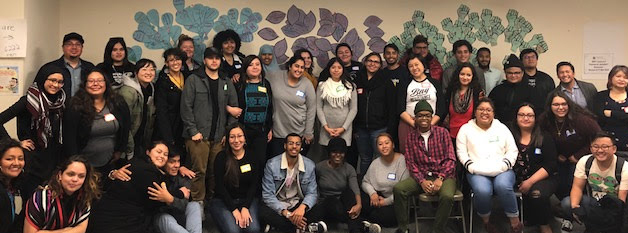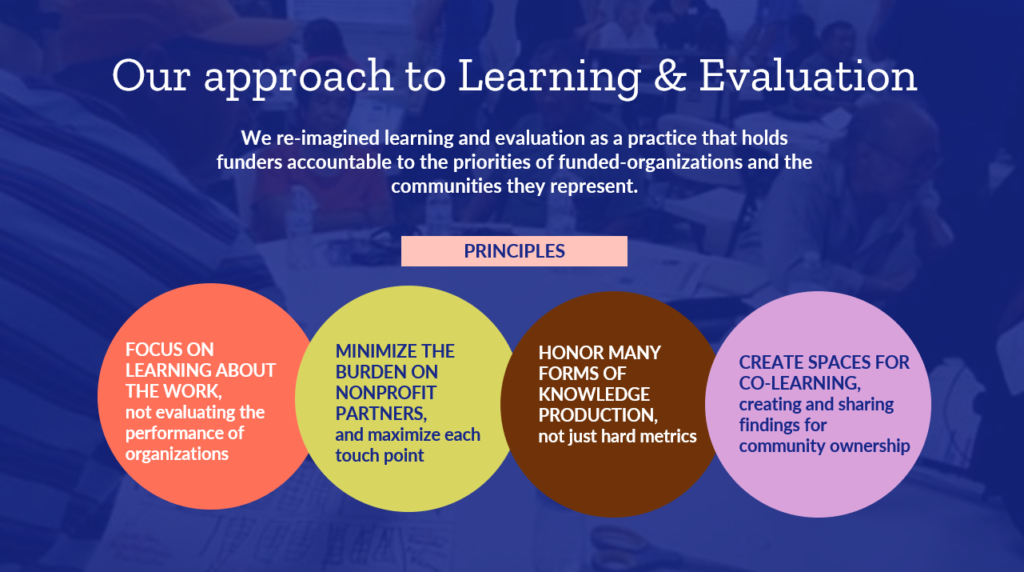A Community-Designed Housing Justice Strategy
A core value of the Fund is holding the priorities of our community partners at the center of our efforts. We designed a learning and evaluation process that focuses on learning from our partners and ensuring our actions are accountable to their needs as experts living and working on the frontlines of these efforts.
Designing this second phase was an opportunity to push ourselves further into alignment, by designing a strategic planning process that was led by these same partners who have been with us and have a vision of what is needed to ensure California is a place where people of color, people living on small or no incomes, still all have a place to call home.
Our Community-Led Process
Our vision of housing justice and equitable development is one where the people closest to the issue have the power to lead and make decisions about their lives, their neighborhoods and communities. This is also a value we hold in the design and operation of the Fund for an Inclusive California. Early on in the development of our strategies we set up a process for accountability to organizations that are funded, to get their feedback and guidance on how we were doing as funders, and how we could better align our funding and processes to their work.
This practice took hold and deep trusting relationships were developed over the years working together. As we teed up the next phase of the fund, we knew there was a possibility to evolve and step even further into community-led strategies and decision-making.
“Having been in this work a long time, and never seen funders follow the lead of organizations, I was skeptical as to whether that commitment would and could be truly realized, but to my surprise, from start to finish, what I saw was funders approaching this with humility and recognition that it is those in the trenches moving this work forward and the best vantage point on what the strategic plan should be.”
Strategy Working Group member
The approach to developing F4ICA’s goals and strategies for this current five-year phase reflects our practice of transparent, accountable, and movement-aligned philanthropy. A nine-person Strategy Working Group made up of Community Advisors, who partnered with F4ICA during the first four years, were the drivers and decision makers of the F4ICA 2023-2027 strategic planning effort.
This vision statement developed by the Strategy Working Group, which serves as our compass for the next five years:
We envision communities where working-class people historically bearing the brunt of social inequity are decision-makers over how their neighborhoods, land, and homes are owned, developed, and stewarded. Housing as well as development policies and decisions are designed to maximize the flourishing of families rather than profit. All people have dignified, well maintained, affordable homes that support their rootedness and belonging.
This future results from a long-term investment in and practice of power building that develops a mass movement and strengthens the organizing infrastructure in California to transfer power, political influence, and economic opportunity from the few to the many.
Through an eight-month process they shaped the priorities of the Fund for this current five-year phase, which have now been refined further through review and direction given by the organizations in each region.
“We had several checkpoints where we circled back with the other organizations. At the convening, we shared our best thinking and checked in with regional coalitions. helpful that as we were going through the process, we were circling back with folks on the ground.”
Strategy Working Group member
Over the eight months, the Strategy Working Group met each month, and were facilitated by F4ICA staff, and when funding strategies were on the table, we brought in our funder partners to gut check the approaches, ask questions to further develop the funding strategy and offer advising from their perspective on the field of philanthropy. In evaluation following the strategic planning process, the Strategy Working Group reflected that this process gave them the opportunity to inform the philanthropic direction of the housing justice field.
Reflections
Strategy Working Group members shared these unique takeaways from the process:
- This is the first time the Strategy Working Group members participated in a strategic planning process for philanthropy that was truly created and crafted by grantee organizations.
- While power dynamics are inevitable, these power dynamics were acknowledged and less of an issue.
- Active listening in this process did not feel extractive.
- Layering opportunities to include the voice of the larger pool of Community Advisors.
- Important to engage a facilitator with movement and philanthropic experience.
“One of the moments that stands out a lot about the process, that I took big learning away from, was the day-long retreat in LA was exploring where we were five years ago and seeing how the things that were at the edges and we were pushing for that funders are funding now. Seeing that trend tells me that we need to keep pushing on the edges and hopefully will have funding – things like tenant protections that five years ago were not the thing to be funding and social housing might seem like out there ideas, but we should continue to be doing this work.”
Strategy Working Group member
“The resources to do the work and the capacities of our organizations are all finite and scarce compared to the need. The more we can all come together – practitioners on the ground and funders to think and do long-term planning together and think about the best and most strategic allocation of resources. Funders do their own strategic planning, but it should not be funders that figure out the strategic planning for the movement because they are not the ones who will carry it out.
are the closest to analyzing what solutions are most needed and most strategic to advance and analyzing the power we have on the ground and what power we don’t have on the ground to achieve the given solutions.
The brilliance of this approach is that it showed recognition that groups on the ground are in the best position to think through what the strategic plan can and should be over a long and short-term period to achieve the greatest impact for our communities. That should drive where funders put their resources. F4ICA demonstrated a great belief in our collective wisdom about what we can achieve now and in the coming years and what it will take to achieve it.”
Strategy Working Group member
For foundations interested in a similar approach, the group offered these insights and points of feedback.
- Assess the strengths of pre-existing relationships among grantees and with funders to determine the depth of process needed.
- Be bold and reach out to grantee organizations, including grassroots organizations.
- Don’t engage in a similar process unless you are truly willing to take the advice of grantee organizations.
- Invest in a facilitator that understands the movement and philanthropy.
“I saw a process that brought us together and worked hard to prevent the inherent imbalance of power. Organizations feel a need to put ourselves out in a way to make sure funders fund us, and measures were taken to tamp down that power and give those on the ground equal power in this process to shape the outcome without precluding the voice and wisdom of funders.”
Strategy Working Group member
“For such a complicated topic, did a good job of grounding in what was realistic. Being clear about the role of the Fund and honest about philanthropy and how far we needed to move them. We had a session with the steering committee (funder partners), and the session was great for putting things on the table, learning how they were trying to move internally and realize all the limitations.”
Strategy Working Group member
What is Ahead
The next steps of shifting decision making will be standing up a governance body that is made up of half Community Advisors and half funders, each with specific roles and responsibilities to guide the strategies of the fund, and organize funding of housing justice efforts.
